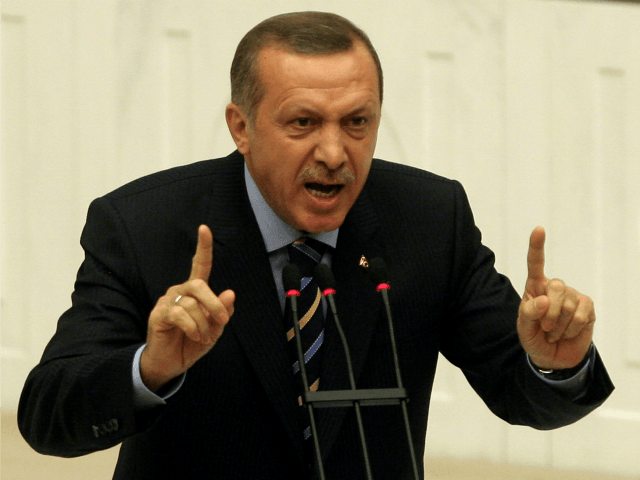The prime ministers of Iraq and Turkey spoke on the telephone on Wednesday to discuss the likely outcome of the Kurdistan’s referendum on independence, the results of which will be announced Friday.
According to a Turkish Foreign Ministry source speaking to the newspaper Hurriyet, Prime Minister Binali Yıldırım and his Iraqi counterpart, Haider al-Abadi, held a phone conversation where Yildirim emphasized that the Turkish government would be “supporting all measures” taken by the Iraqi government and its Parliament against Kurdistan.
The referendum, which took place on Monday with a turnout of 78 percent, is expected to deliver a landslide result for independence of around 92 percent, which Kurdish President Masoud Barzani has said will give him the chance to “start a dialogue with Baghdad.”
However, leaders in Baghdad have opposed any possible secession and have described the process as unconstitutional.
“We are not ready to discuss or have a dialogue about the results of the referendum because it is unconstitutional,” al-Abadi said in a televised address on Monday night. “Most of the problems of the [Kurdish] region are internal ones, and not with Baghdad, and will be increased with the calls for separation. The economic and financial problems the region is suffering from are the result of corruption and mis-administration.”
Since the referendum took place, the Iraqi Parliament has taken 13 separate measures against the region, which include the deployment of troops in Kurdish territory, as well as taking legal action against the organizers behind the vote.
On Wednesday, a statement from the Iraqi military also confirmed that they had sent a top-ranking delegation to Iran “to coordinate military efforts,” although it did not confirm the motive behind it.
Meanwhile, Turkish President Recep Tayyip Erdogan has threatened potentially crippling restrictions on oil trading with Kurdistan, whose crude oil revenues represent a key source of income for the region’s economy, and warned he was willing to take “all necessary steps” to protect Turkish interests.
“We are taking and will continue to take all necessary steps on the political, economic, trade and security fronts. The armed forces did not take necessary steps in Silopi for no reason. There will be no compromise,” Erdogan said in a televised address, referencing military drills currently taking place on the Turkish-Iraqi border.
In 2015, Erdogan illegally sent hundreds of Turkish troops into Mosul in northern Iraq to join the fight against Islamic State and refused to remove them, despite warnings from the Iraqi government that they would “dismantle” the troops should they not withdraw.
Just last month, Erdogan again claimed he was considering escalating its military operations in both Iraq and Syria to ensure national security.
The Turkish leader has previously warned that the referendum could spark an “ethnic war” in the region and claimed that Kurdish citizens would starve should Turkey decide to close its long border with northern Iraq, an idea Turkish officials are currently considering.
Turkish government spokesman Bekir Bozdag also claimed Turkish armed forces would stop training Iraqi Kurdish peshmerga forces, who are tasked with protecting oil fields from capture by Islamic State militants.
The United States has also outlined its opposition to the referendum, with the State Department revealing they were “deeply disappointed that it had taken place.”
“[Our] historic relationship with the people of the Iraqi Kurdistan Region will not change in light of today’s non-binding referendum, but we believe this step will increase instability and hardships for the Kurdistan region and its people,” the department said in a statement.
Follow Ben Kew on Facebook, Twitter at @ben_kew, or email him at bkew@breitbart.com.

COMMENTS
Please let us know if you're having issues with commenting.